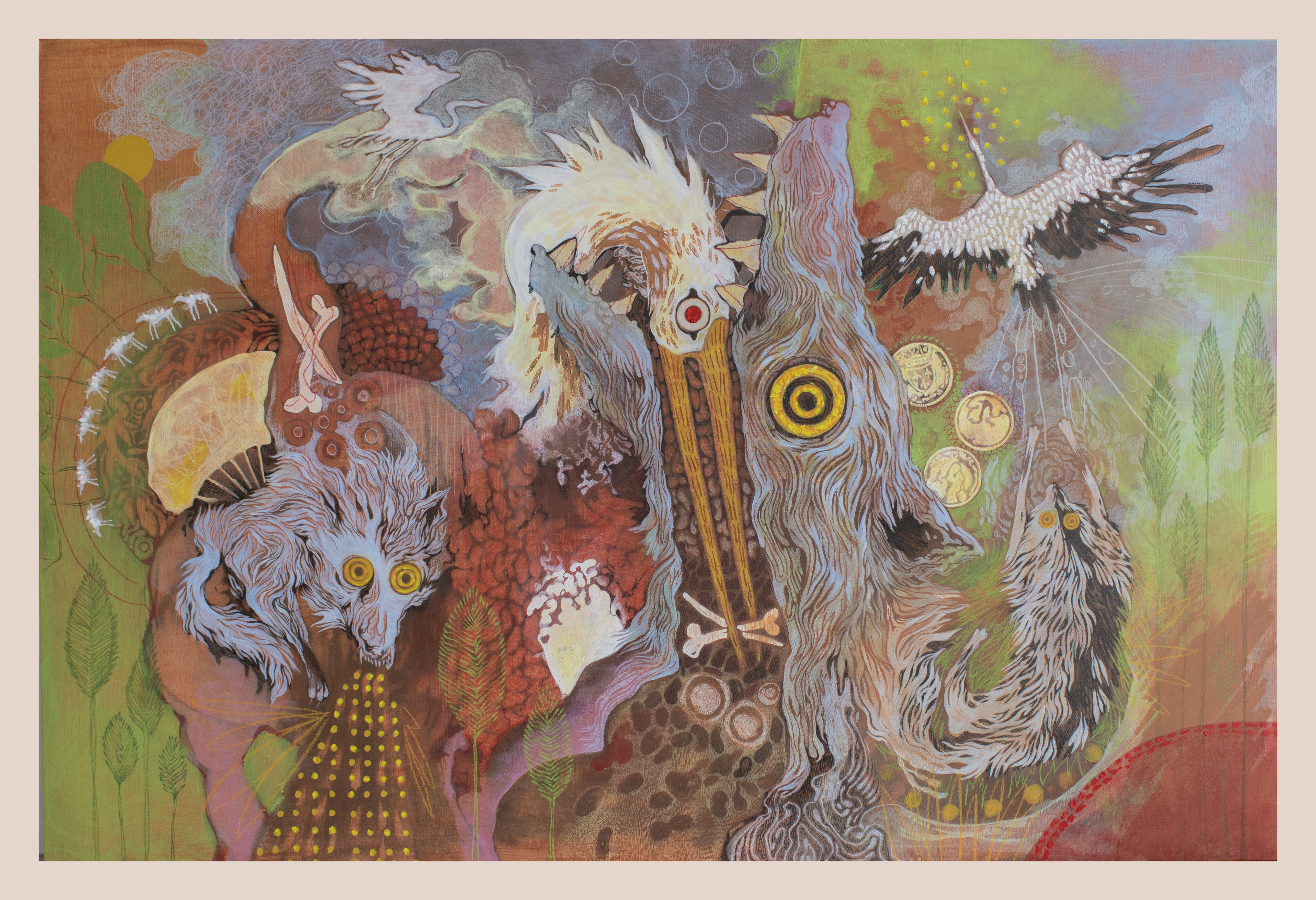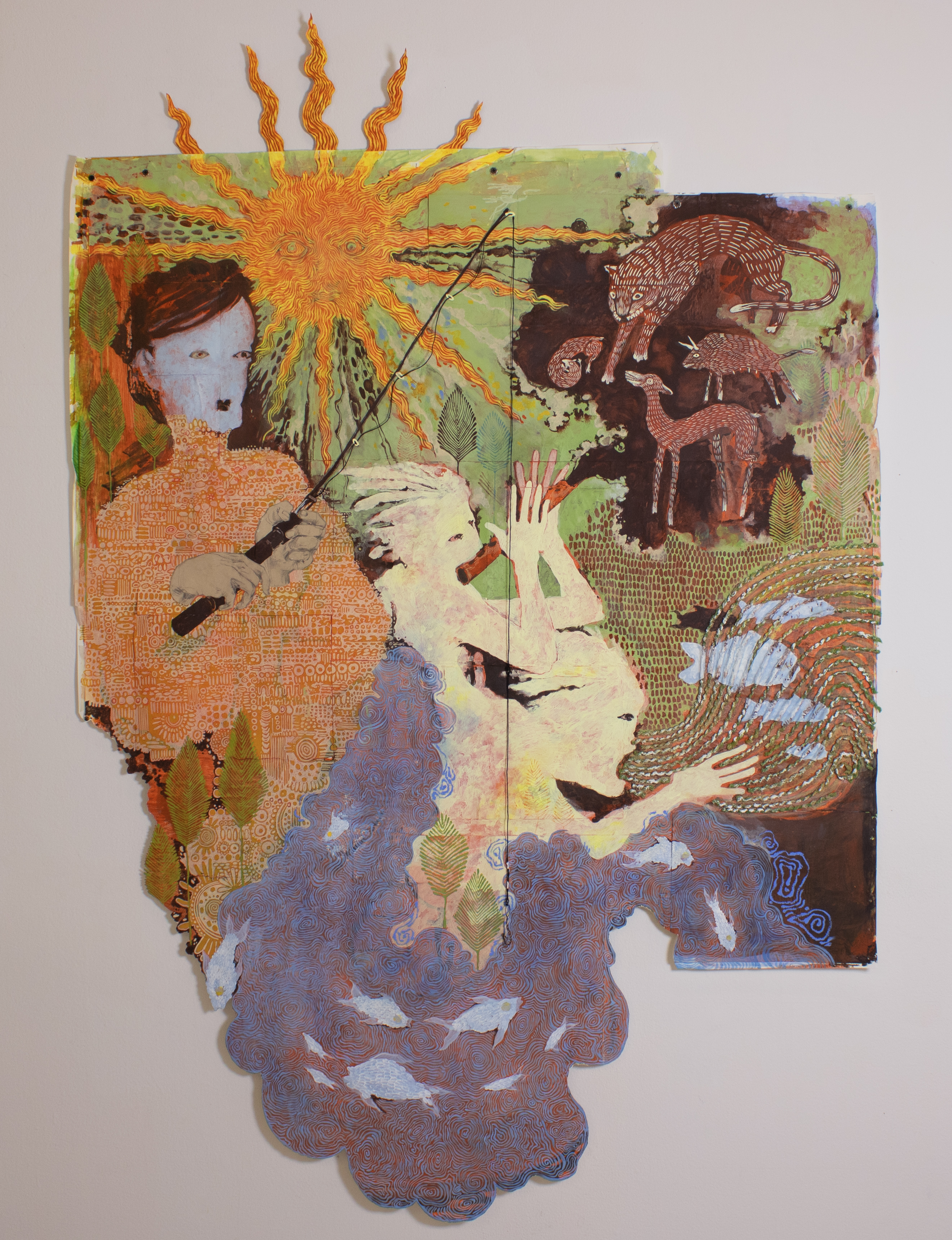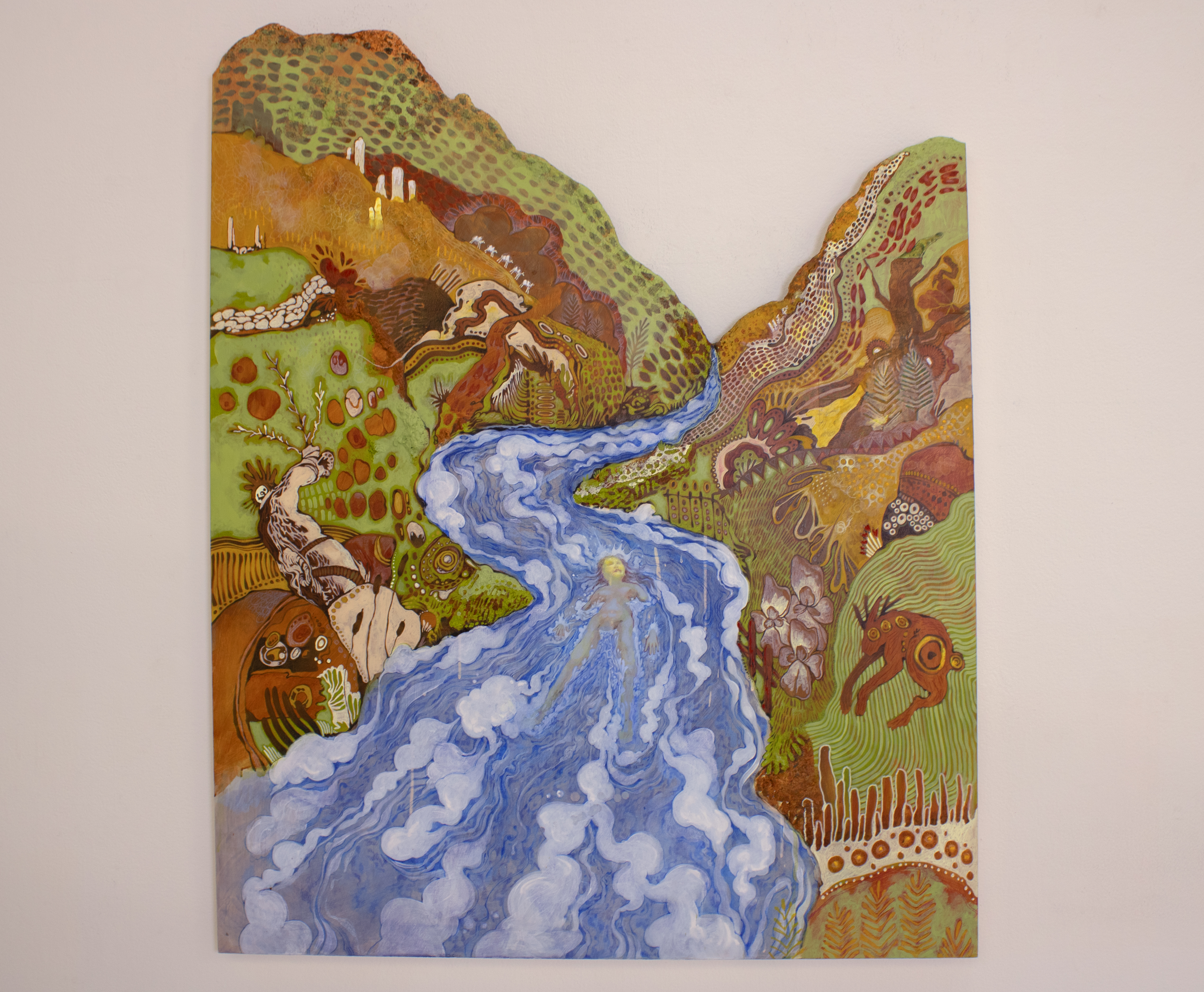Sally Frances Stram
![]()
![]()
![]()



Three Parables of Egress: An examination and translation of The Fables of La Fontaine
Three Parables of Egress is based on three narratives selected from the work of Jean de La Fontaine’s first collection of fables published in France in 1668.
This series focuses on the theory of translation as a way to transpose the text’s linear narrative, inverting both convention and normative expectation to redefine female characterization. The text takes on a dated masculine influence in its sequence and characters, burying notions of social coercion and “proper” behavior for women. Through the lens of translation theory, cultural and gendered differences allow for a complete narrative critique because of the variances in location, period, culture, and means of artistic expression between myself and the work of La Fontaine. The drawings give way to an altered narrative and shift the role of women from an object of desire and source of conflict into a character content in her own existence.
The illustrations are intentionally not displayed alongside the text in order to permit my characterization to take sole importance. Automatic drawing and spontaneous material choices allowed my own understanding of unconscious desire to entangle itself within the parables. This process of making blurs the distinctions between narrative illustration and the painting discipline.
The work challenges social and cultural predispositions within the original context of the published fables and into the modern era. Three Parables of Egress promotes a dissipation of shame through the woman’s removal of herself from social expectation and allows unconscious thought and desire to surface without condemnation.
